Filter by
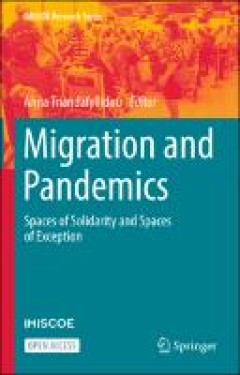
Migration and pandemics: spaces of solidarity and spaces of exception
This open access book discusses the socio-political context of the COVID-19 crisis and questions the management of the pandemic emergency with special reference to how this affected the governance of migration and asylum. The book offers critical insights on the impact of the pandemic on migrant workers in different world regions including North America, Europe and Asia. The book addresses seve…
- Edition
- -
- ISBN/ISSN
- 9783030812102
- Collation
- xxii, 248 p. : ill.
- Series Title
- IMISCOE Research Series
- Call Number
- 614.592414 TRI m
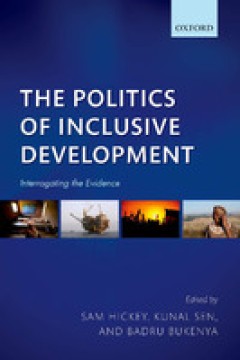
The politics of inclusive development : interrogating the evidence
It is now widely accepted that politics plays a significant role in shaping the possibilities for inclusive development. However, the specific ways in which this happens across different types and forms of development, and in different contexts, remains poorly understood. This collection provides the state of the art review regarding what is currently known about the politics of inclusive devel…
- Edition
- Ed. 1
- ISBN/ISSN
- 9780198788829
- Collation
- xx, 396 p. : ill.
- Series Title
- -
- Call Number
- 338.9 BUK t
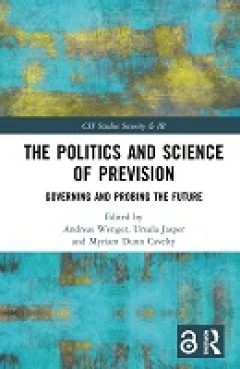
The politics and science of prevision : governing and probing the future
"This book inquires into the use of prediction at the intersection of politics and academia, and reflects upon the implications of future-oriented policymaking across different fields. The volume focuses on the key intricacies and fallacies of prevision in a time of complexity, uncertainty and unpredictability. The first part of the book discusses different academic perspectives and contributio…
- Edition
- 10
- ISBN/ISSN
- 9780367900748
- Collation
- xi, 272 p. : ill.
- Series Title
- -
- Call Number
- 320.6 WEN t
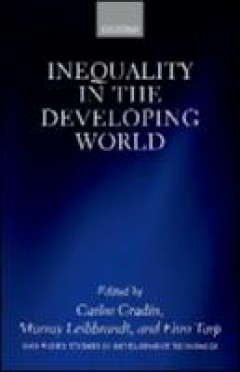
Inequality in the developing world
Inequality has emerged as a key development challenge. It holds implications for economic growth and redistribution and translates into power asymmetries that can endanger human rights, create conflict, and embed social exclusion and chronic poverty. For these reasons, it underpins intense public and academic debates and has become a dominant policy concern within many countries and in all mult…
- Edition
- Ed. 1
- ISBN/ISSN
- 9780198863960
- Collation
- xx, 352 p. : ill.
- Series Title
- -
- Call Number
- 330.91724 TAR i
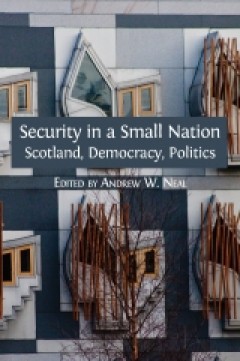
Security in a small nation : scotland, democracy, politics
The 2014 Referendum on Scottish independence sparked debate on every dimension of modern statehood. Levels of public interest and engagement were unprecedented, as demonstrated by record-breaking voter turnout. Yet aside from Trident, the issue of security was relatively neglected in the campaigns, and there remains a lack of literature on the topic. In this volume Andrew Neal has collated a va…
- Edition
- -
- ISBN/ISSN
- 9781783742707
- Collation
- ix, 256 p. ; ill
- Series Title
- -
- Call Number
- 355.0309411 NEA s

Essays on Paula Rego: smile when you think about hell
In these powerful and stylishly written essays, Maria Manuel Lisboa dissects the work of Paula Rego, the Portuguese-born artist considered one of the greatest artists of modern times. Focusing primarily on Rego’s work since the 1980s, Lisboa explores the complex relationships between violence and nurturing, power and impotence, politics and the family that run through Rego’s art. Taking …
- Edition
- -
- ISBN/ISSN
- 9781783747580
- Collation
- xv, 492 p. : ill. : ind. ; 24 cm
- Series Title
- -
- Call Number
- 759.421 LIS e
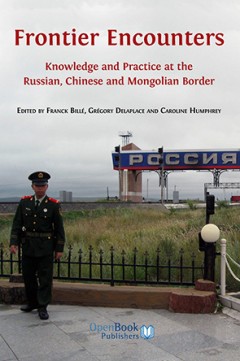
Frontier encounters: knowledge and practice at the Russian, Chinese and Mongo…
China and Russia are rising economic and political powers that share thousands of miles of border. Yet, despite their proximity, their practical, local interactions with each other — and with their third neighbour Mongolia — are rarely discussed. The three countries share a boundary, but their traditions, languages and worldviews are remarkably different. Frontier Encounters presents a w…
- Edition
- -
- ISBN/ISSN
- 9781906924898
- Collation
- ix, 280 p. : ill. : ind. ; 24 cm
- Series Title
- -
- Call Number
- 327.51047 FRO f
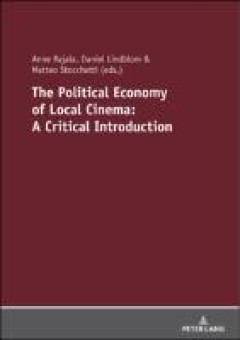
The political economy of local cinema : a critical introduction
The globalization and digitalization of cultural markets presents formidable challenges for local cinema and storytelling. The essays in this collection address some of these challenges from the perspective of a critical political economy of local cinema. Inspiring these contributions is the effort of supporting local cinema as a form of valuable storytelling that is at risk of market-driven ex…
- Edition
- -
- ISBN/ISSN
- 9783631813300
- Collation
- 257p. : ill.
- Series Title
- -
- Call Number
- 302.2343 RAJ t

World of walls: the structure, roles and effectiveness of separation barriers
Borders have been drawn since the beginning of time, but in recent years artificial barriers have become increasingly significant to the political conversation across the world. Donald Trump was elected President of the United States while promising to build a wall on the Mexico border, and in Europe, the international movements of migrants and refugees have sparked fierce discussion about whet…
- Edition
- -
- ISBN/ISSN
- 9781783743704
- Collation
- 143 p. : ill. : ind. ; 24 cm
- Series Title
- -
- Call Number
- 304.8 SAD w
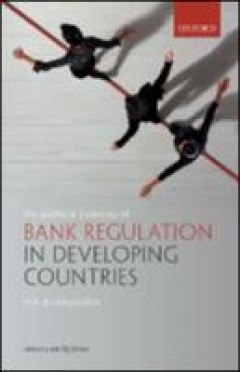
The political economy of bank regulation in developing countries : risk and r…
Why do governments in some developing countries implement international standards, while others do not? Focusing on the politics of bank regulation, this book develops a new framework to explain regulatory interdependence between countries in the core and the periphery of the global financial system. Drawing on in-depth analysis of eleven countries across Africa, Asia, and Latin America, it sho…
- Edition
- Ed. 1
- ISBN/ISSN
- 9780198841999
- Collation
- xvii, 386 p. : ill.
- Series Title
- -
- Call Number
- 332.1091724 JON t
 Computer Science, Information & General Works
Computer Science, Information & General Works  Philosophy & Psychology
Philosophy & Psychology  Religion
Religion  Social Sciences
Social Sciences  Language
Language  Pure Science
Pure Science  Applied Sciences
Applied Sciences  Art & Recreation
Art & Recreation  Literature
Literature  History & Geography
History & Geography